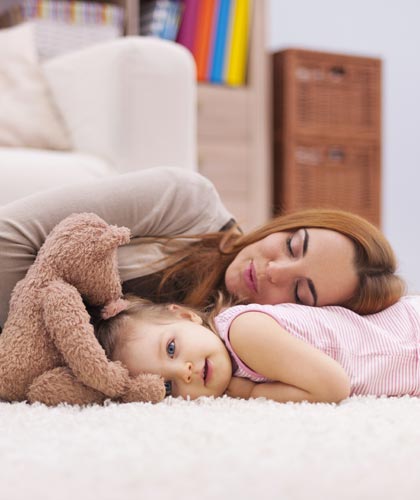The Risks of Mold Exposure In Children
Mold is often dangerous for your health. But mold exposure may be even more damaging for your children. Mold health effects on kids can range from allergies to developmental challenges. Learning more about mold and your kid's health is the first step to fixing the problem.
The article below covers the effects mold can have on your children and how to treat and prevent problems from mold exposure.
Is mold dangerous for your kids?
Definitely, yes! Mold is dangerous for your kids. The type of health effects may vary based on individual susceptibility and the extent of mold exposure. The sooner you identify mold problems and seek professional removal, the better for your child's well-being.
Why is mold a concern for children's health?
There is a link between mold and children's health. Different things in your environment can trigger allergy or asthma symptoms. Mold is a common trigger. Breathing in mold spores can worsen asthma, leading to both an increase in the severity of symptoms and the frequency of asthma attacks.
But allergies and asthma are not the only adverse health effect of mold exposure for children. Mold may also affect cognitive development in kids.
A study published in the journal Physiology & Behavior compared cognitive test scores on children exposed to mold and those not exposed. The study followed the children for 6 years.
The results indicated that children who lived for long periods in mold-contaminated homes scored about 10 points lower on cognitive tests than those with no mold exposure.
Why children are more vulnerable to mold than adults
Mold can be harmful to your health at any age. But children are even more susceptible to health problems from mold than adults.
A child's immune system is still developing. Because their immune system is not working as efficiently as an adult's, a foreign substance, such as mold, can lead to an abnormal immune system reaction. This abnormal response can cause diseases such as asthma.
Children also have smaller airway diameters than adults. If inflammation from mold exposure occurs, it can restrict breathing even more than in adults.
Is it safe for kids to stay in mold-affected areas?
It is not safe for children to stay in mold-affected areas. According to research in the journal Environmental Health Perspectives, excessive mold exposure in children can increase the risk of certain types of pneumonia. The research also indicates that there appears to be a relationship between exposure to mold and a decrease in lung function in some children.
As a child's immune system develops, an abnormal inflammatory response due to mold exposure may put your child at risk for future abnormal reactions to inhaled allergens.
If you think your home has mold, it is best to reduce your child's exposure as soon as possible.
Symptoms of mold exposure in children
Symptoms of mold exposure may include respiratory problems, such as:
- Wheezing
- Coughing
- Trouble breathing
- Nasal and sinus congestion
- Runny nose
Apart from lung symptoms, additional signs and symptoms of mold exposure inc children may include:
- Headache
- Fatigue
- Eye irritation
- Skin rash
What health problems can mold exposure lead to?
According to the National Center for Healthy Housing, about 10 percent of the population is allergic to mold. But you don't have to be allergic to mold to develop health problems.
Mold health effects for children can vary in severity. For example, some children may only develop mild allergic symptoms, such as sneezing or coughing. But for other kids, the health effects can be more serious.
According to Boston Children's Hospital, possible health effects from mold exposure can include:
- Hypersensitivity pneumonitis
- Skin infections
- Headaches
- Problems concentrating
- Allergic rhinitis
- Asthma
How to prevent mold in your home
Preventing mold in your home is important for your child's health. There are several things you can do to decrease the risk of mold, including:
- Fix water leaks as soon as possible.
- Install equipment, such as dehumidifiers and exhaust fans, to prevent moisture build-up.
- Ensure areas, such as bathrooms and kitchens, where moisture may easily occur, are well-ventilated.
- Contact a professional mold remediation company, such as Mold KO of Dallas, TX, to safely test for and remove mold.
Is there a Treatment for Mold Exposure?
Treatment for mold exposure involves seeking medical help from your healthcare provider. The exact treatment depends on the symptoms involved.
The second step is to have the mold removed to prevent dangerous health effects from mold. Mold KO of Dallas provides professional mold removal services to help secure your home from these threats.
How to deal with mold in your home
Mold exposure can make you and your children sick. Your kids are especially susceptible to problems, such as asthma, allergies, and skin rashes. As your child's system is developing, mold exposure can set in motion an abnormal inflammatory response.
Getting rid of the mold quickly may prevent long-term adverse health effects for your children. Protecting your child's health by taking mold removal seriously is vital.
Leave the mold removal process to us at Mold KO of Dallas, TX. Our team of professionals will remove mold in a safe and timely manner. If you have any questions, we are happy to help. Give us a call at 469-498-8722.
